Discover The Cinematologists Podcast
The Cinematologists Podcast

The Cinematologists Podcast
Author: Dario Llinares & Prof. Neil Fox
Subscribed: 323Played: 4,098Subscribe
Share
© Dario Llinares
Description
Film academics Dr Dario Llinares and Prof. Neil Fox discuss a range of films and dissect film culture from many different perspectives. The podcast also features interviews with filmmakers, scholars, writers and actors who debate all aspects of cinema.
dariollinares.substack.com
dariollinares.substack.com
223 Episodes
Reverse
Welcome friends.As always, our final episode of a calendar year is a look back at our cinematic highlights, structured around Neil’s and my top ten films lists. We always try to put this in something of a broader context, suggesting the always subjective criteria of judgement that go into our selections and the sense of incompleteness, compromise and general fallibility of ranking one’s artistic pleasure and admiration. But Neil is right when he comments on the show that lists are a way of organising thought amid the incessant noise of cultural overload.That question of structure becomes a recurring preoccupation across the conversation. Neil mentions that, when assembling his ten, he found himself instinctively pairing films; spotting “cousins” that echo each other in tone, narrative, or thematic focus.This is something of a recognition that cinematic appreciation often works through a clustering: films that don’t merely share “topics” (capitalism, community, violence, grief), but share strategies for coping with a world that increasingly refuses coherence.For me, an undeniable feature of 2025 in cinema has been the many narratives that reflect a feeling of senselessness—stories that don’t “resolve” so much as metabolise disorder. We keep circling filmmakers who can register the insanity of the present without converting it into a tidy thesis. Radu Jude is the obvious touchstone here: we talk about how his filmmaking avoids the temptation of big declarative statements, holding sincerity and cynicism, humour and despair, in the same hand.Kontinental 25, as much as any other film this year, explores the granular experience of politics as a kind of moral nausea, digital immediacy of its form aping the doom-scroll logic of being pulled from one sickening little story to the next.We keep returning to the sense that many “state of the nation” films this year (especially in the American context) operated as overt statements—almost insistently discursive—while, at the same time, we explored quieter, more contemplative works that approached personal and social crisis through subtler uses of form, tone, and time.Many films this year, implicitly and explicitly, explored the tensions of capitalism as a kind of lived texture: bureaucracy, managerialism, the violence of systems that call themselves neutral. From the handheld realism of Souleymane’s Story (Boris Lojkine) right through to the expansive mythos and genre pleasures of Sinners (Ryan Coogler), the political economy of history and identity becomes a driving force.Indeed, Neil looks beyond the reductive “folk horror” label attached to Athina Rachel Tsangari’s Harvest, reading it instead as a study of collective life, of a community’s ethical capacity being tested by difference. Yet, in the end, capitalism arrives not as an abstract system but as an administrative colonisation that annihilates any sense of physical and cultural grounding.Political critique, meanwhile, was often built into formal aesthetics and narrative structure, delivered through inventive reworkings of familiar genres. Sinners, along with Zach Cregger’s Weapons and Steven Soderbergh’s Presence, were, of course, operating within the métier of horror. Francis Lawrence’s The Long Walk (the only film in my top ten I didn’t see at the cinema) is a brutal, unrelenting take on the speculative-dystopian trope of lethal competition, one that reads as a symbolic portrait of social psychopathy.Alongside these political currents sits another, quieter one: the insistence that time, how it’s felt, withheld, folded, or weaponised, might be cinema’s most underappreciated tool. Neil’s mini-rant about people calling Reichardt “slow” is really about the poverty of contemporary attention. The film knows it’s slow; it’s inviting you to spend time, to register the “felt time” of what happened before the film even begins. Elsewhere, we keep noticing films that structure revelation itself as an ethical question: when do we learn things, and how do we learn them?It’s why Nickel Boys becomes such a touchstone film for me, one that is criminally under-discussed. RaMell Ross’s attunement to memory and subjectivity, rather than objective historical biography, is realised through an innovative use of the POV shot—retooling it as an “aesthetics of alignment with empathy,” an apparatus through which we’re offered a multi-layered window into psycho-social trauma.I don’t want to reveal all the films we discuss—particularly our top choices—which, if you’ve followed The Cinematologists podcast, might strike you as paradoxically both as you might expect and somewhat contrary to expectations.At the end of the show, we spend a little time reflecting on The Cinematologists. We talk about the show’s ten-year run as a fitting “bracketing,” and hope it stands as a testament to a valuable, collaborative body of work. We discuss the different stages of the podcast, how it has evolved over time, and why, for various reasons in our work and personal lives, this feels like the right moment to stop.We’re no longer “young academics,” no longer driven by the same imperative to fill a gap in the culture. And we’ve always said that if the podcast ever became a chore—or, worse, if it looked like it might compromise our friendship—it would be time to draw things to a close.For me, I know I’ll reflect more in depth, in time, on what The Cinematologists has meant: the defining anchor of my cultural life, and a way of orienting my thoughts around the artform I love. I do need a little space, though, to adequately reckon with how much I’ve gained, the hard and soft skills that have made me a better writer, speaker, and thinker. Most importantly, producing the show with Neil for over a decade has taught me so much about the nature of collaboration, a commitment to practice, and what it means to be a friend.And, of course, thank you so much to everyone who has listened and come with us on this journey._____For the full Cinematologists archive, head to: https://dariollinares.substack.com/s/the-cinematologists-newsletter-archiveFor more bonus content: www.patreon.com/cinematologists_____Music Credits:‘Theme from The Cinematologists’Written and produced by Gwenno Saunders. Mixed by Rhys Edwards. Drums, bass & guitar by Rhys Edwards. All synths by Gwenno Saunders. Published by Downtown Music Publishing. This is a public episode. If you'd like to discuss this with other subscribers or get access to bonus episodes, visit dariollinares.substack.com/subscribe
The final regular episode of the podcast, not just for the season, but yes, for good, is a doozy. Writer Violet Lucca returns to the podcast for the first time since 2017 and for her first full, solo conversation, to discuss her incredible book on David Cronenberg, Clinical Trials (2024, Abrams). I talk to Violet about her process of writing the book, wit in criticism, sex and identity, and the politics of the time the films were made and what they say now, the emotional impact of rewatching films and the transformative power of writing about cinema, amongst other topics. And of course we explore specific titles in the Cronenburg filmography, in particular Crash (1996), Existenz (1999) and his most recent release The Shrouds (2024).After my conversation with Violet, we delve into the complexities of Cronenberg’s work, particularly regarding sexuality and identity, and wrap up with a few thoughts looking ahead to the final episode of the pod.Other topics in the episode include reflections on the writing of year-end film lists ahead of our final, upcoming episode, the importance of micro cinemas to film exhibition culture, and highlight former guest Pat Kelman’s crowdfunding campaign to aid film distribution in Cornwall, and for Cornish filmmakers in particular. Following (NF)———Visit our Patreon at www.patreon.com/cinematologistsFor the full podcast archive: https://dariollinares.substack.com/s/the-cinematologists-newsletter-archive———Music Credits:‘Theme from The Cinematologists’Written and produced by Gwenno Saunders. Mixed by Rhys Edwards. Drums, bass & guitar by Rhys Edwards. All synths by Gwenno Saunders. Published by Downtown Music Publishing. This is a public episode. If you'd like to discuss this with other subscribers or get access to bonus episodes, visit dariollinares.substack.com/subscribe
Welcome, friends.I have to admit that I’ve experienced a questionable amount of pleasure in researching for this latest episode of The Cinematologists Podcast. When I say “research”, I basically mean that every evening for the past two weeks I’ve been guiltlessly revelling in the violence, glamour and moral ambiguity of the cinema’s greatest hitmen (and women), assassins, and lone killers.It’s the question of these pleasures - of watching such characters move silently through the modern milieu we share: restaurants, banks, hotels, airports - and of their status as avatars for the commodity fetishism we’re socialised to desire, whether it’s clothes, cars, exotic locations or, indeed, guns, that we take as the starting point.These pleasures are aesthetic, to be sure, and a core line of our conversation explores the visual and sonic mechanisms filmmakers use to make the lone killer look impossibly cool.But on a deeper level, there are myriad symbolic pleasures to unpack, primarily derived from the assassin’s fundamental essence as a professional arbiter of death. By “symbolic pleasures” I mean the fantasies we get to borrow and try on at a safe distance. Cinema has always trafficked in these kinds of projected desires and anxieties, that’s what genres, stars and archetypes are for. But the lone killer amplifies this function, condensing into a single figure our contradictory longing for total freedom and autonomy, yet within the familiar framework of modernist culture, politics, and economics.We outline the dimensions of these symbolic pleasures. Total agency without negotiation or compromise, for instance. The killer embodies absolute decision-making and self-determination. In a culture of soft coercions, bureaucracy, b******t meetings, and interminable incompetence, the killer taps into a dark form of detached liberation. Although this notion is itself confounded to comic effect in Andrew Dominik’s brilliant Killing Them Softly (2012).The lone killer also exudes the romance of the outsider. The shadowy loner, an anti-citizen manipulating the system from the margins, carries a sense of mystery that endures, particularly in a time when sharing every aspect of our lives has become something of a default performative practice. Indeed, it’s fascinating to consider the lone killer as a symbol of alienation. They’re what a certain kind of loneliness looks like when it becomes active rather than depressive: isolation turned into method, detachment honed into a way of being in the world.For some killers, sexual desire is absolutely central to the mythos. Bond is the clearest prototype here, because scholarship has long framed him as a figure where violence is packaged with aspirational consumption and sexual charisma, all intertwined. And then there’s the sexual charge, which often isn’t “romance” so much as mobility: sex as another form of non-attachment, a proof that the killer can pass through bodies and spaces without being pinned down by them. Yet Bond films (and to an extent the character himself) have been read through a queer lens – breaking down the heteromasculine fantasy the films seem to promote (an aspect we discuss in some depth on this episode of the podcast: License to Queer).The real hook, though, is the fantasy of having no responsibilities to other humans. Or, more accurately, the fantasy of choosing your responsibilities. These protagonists often keep one small “human” attachment in a sealed container while everyone else becomes abstraction: targets, obstacles, and collateral damage. That compartmentalisation is the emotional technology that allows the lifestyle to function.Sexuality reads differently, of course, when the lone killer is a woman. The adoption of the femme fatale persona becomes both a weapon and a trap: seduction as tactical performance, but also as a ready-made framework through which her violence is contained, coded and often punished. The female lone killer frequently has to navigate the double bind of being hyper-visible as an object of desire while trying to claim the same cool detachment and professional focus afforded to her male counterparts.Then there’s competence as seduction. So many of these films function as “craft porn”: extended sequences of planning, surveillance, weapon prep, logistics, timing. We’re invited to admire mastery long before we’re asked to consider the consequences. That emphasis on hyper-competence often feeds into another recurring strand of lone-killer characterisation: a kind of obsessive, compulsive pathology. There is frequently an implicit, and sometimes explicit, suggestion that the killer is an outsider not just because of what they do, but because of how they are wired – uncomfortable with ordinary social interaction, more at home with systems and routines than with people. Being “out of sync” with the social world is then reframed as the superpower that underwrites their cold precision and attention to detail. It’s a trope that, to put it mildly, comes with its own problems around how neurodivergence and emotional detachment are conflated and aestheticised.Perhaps most importantly of all, though, the hitman/assassin symbolises the pleasure of circumventing – even actively challenging – the contradictions of the moral frameworks we’re all supposedly compelled by. On one level, it’s straightforward: breaking the laws of modern society to “get the job done” is stylised into an art form. But for many of these characters, especially those who aren’t simply nihilistic or coldly driven by money, there’s also a kind of ersatz morality at play. They possess a code, an ethos that operates as a moral alibi. Their relativist ethics become a way to expose the contingency, compromise, and hypocrisy of our broader systems of justice and citizenship. In watching them, we get to flirt with the fantasy of stepping outside that contradiction altogether.dariollinares.substack.comwww.cinematologists.com This is a public episode. If you'd like to discuss this with other subscribers or get access to bonus episodes, visit dariollinares.substack.com/subscribe
This is a free preview of a paid episode. To hear more, visit dariollinares.substack.comThe notion of the cinematic is an oft-floated term: a kind of critical get-out clause for when a writer (or speaker) wants to register approval without getting pinned down. It lets you gesture beyond the prosaic, narrative, structure, even aesthetics (too easily reduced to “mere beauty”), towards something supposedly larger and more complex to define.Ci…
Gwenno, on the set of her short film, Tresor (2022) [Copyright: Bosena / Alex Fish]We have the perfect theme song for our podcast, courtesy of the musician, artist and writer Gwenno. In Bristol in September, for the Encounters film festival, Neil took some time to chat to Gwenno at length about culture, social media, memory, capitalism and community, to put on [tape] some shared thoughts about life and art, before the podcast winds down. Even before writing and recording the theme tune to the Cinematologists - available to purchase and stream here - Gwenno was a friend of the show, and Neil wanted to give listeners the chance to hear from someone whose ideas and approaches to the making and absorbing of art have come to inspire and challenge his own. He also just really likes talking to her, and wanted podcast listeners to experience that pleasure also. Around that central conversation, inspired by it, Neil and Dario get into it about intersections of art and culture as they frequently do, plus challenges faced by contemporary youth, the critical engagement of students with the film industry, the quest for artistic authenticity, and the evolving nature of countercultures in the digital age. The conversation also touches on the impact of technology on creativity, the role of education in fostering cultural exploration, and reflections on historical subcultures like rave culture. Thanks to Maddie at Watershed in Bristol for providing a space to record during the Encounters Film Festival. Gwenno is currently touring and if she’s near you, you should go and see her, she’s an incredible live performer. This episode also features her songs ‘Tresor’, from the album and film of the same name, from 2022, and available to buy here, and ‘St Ives New School’, from this year’s brilliant record Utopia, which you can buy here. ———Visit our Patreon at www.patreon.com/cinematologists———You can listen to The Cinematologists for free, wherever you listen to podcasts: click here to follow.We really appreciate any reviews you might write (please send us what you have written and we’ll mention it) and sharing on Social Media is the lifeblood of the podcast, so please do that if you enjoy the show.———Music Credits:‘Theme from The Cinematologists’Written and produced by Gwenno Saunders. Mixed by Rhys Edwards. Drums, bass & guitar by Rhys Edwards. All synths by Gwenno Saunders. Published by Downtown Music Publishing. This is a public episode. If you'd like to discuss this with other subscribers or get access to bonus episodes, visit dariollinares.substack.com/subscribe
As always on The Cinematologists podcast, we like to address topics of salience, but in our own way and in our own time. The death of David Lynch left an irreplaceable hole in the fabric of cinema and, rightly, prompted immediate tributes from collaborators, as well as countless reflections on his status as an artist and filmmaker.The spectre of his influence has found its way into many episodes over the years: Scott Tanner Jones discussing Lynch’s impact in this episode on Physical Media, also in Neil’s conversation with Bertrand Bonello on The Beast, and in my conversation with Michel Chion, and has been referenced in numerous others. This was the third screening in Mark’s unofficial L.A. trilogy with us, following Big Wednesday and The Doors.Lost Highway has always existed at the edge of even Lynch’s already strange filmography. Critically dismissed at the time and commercially ignored (like most of Lynch’s work), it is now seen by many as the beginning of his late “L.A. Trilogy,” preceding Mulholland Drive and Inland Empire. For both Neil and Mark, this film is personal, formative, and endlessly rewatchable—precisely because it resists resolution.Set in a murky Los Angeles that exists halfway between industrial hellscape and erotic fever dream, Lost Highway is a Möbius strip of a movie, beginning where it ends, and unravelling its characters and its viewers alike. It conjures its mood not just through narrative but through textures: light, shadow, analogue tape, blown-out industrial soundscapes, and those unnameable feelings that reverberate long after the final frame.The conversation is as engaging and in-depth as you’d expect, with Mark, Neil and the audience at Newlyn in top form. Key themes discussed include:* Lynch and memory’s strange register:Mark reflects on how Lynch’s films live in a different kind of memory register than most; more a series of fleeting snapshots than the coherence of active recall. Because of that, every viewing reveals new aspects; haunting fragments displace and rearrange entire subplots that had taken hold in the subconscious. In that sense, we consider Lynch’s cinema as a form of recursive hauntology.* The loop as trap (road to road):From the very first shot of that endless road to the repetition of sounds and visuals at the film’s end, Mark explores Lost Highway as a recursive loop that traps its characters in a fugue state of guilt, desire, and dissociation.* Structural ouroboros and influence:This structural ouroboros recalls the severed ear in Blue Velvet, or the rabbit-hole narrative of Mulholland Drive. For Mark, as a filmmaker, this formal approach is profoundly influential to his own sense of cinematic composition, time and narrative fracture.* Sexual jealousy and the violence of looking:The film’s narrative is anchored in the protagonist’s feelings of inadequacy, paranoia, and desire. The Mystery Man, played with uncanny chill by Robert Blake, becomes a vessel for projecting disowned guilt and dissociation.* Hollywood as a transformation machine:Patricia Arquette’s double role, and the thematic through-line of transformation (from Fred to Pete; from brunette to blonde), prompt a reading of the film as a noir dream of Hollywood, where people are consumed, remade, and destroyed by the gaze.* Sound as cinema:A recurring motif across the discussion is Lynch’s sonic world-building. Angelo Badalamenti’s score, Barry Adamson’s textures, and contributions from Nine Inch Nails, Rammstein, David Bowie, and Marilyn Manson shape the film’s contours. It’s a work felt not just through images but through air movement and industrial pressure waves.* A sense of closure:Neil and Mark discuss the finality of Lynch’s oeuvre. “Everything is set now,” Mark says of the filmography. “There will be no more work from him. You watch it now in the context of a finished body of work, rather than imagining what he might do next.” Neil ends the episode quoting from Pier Paolo Pasolini’s reflections on the Long Take in Cinema and Life, which felt apt.Neil and I continue the conversation around the central tension of the episode: how—or even whether—we’re supposed to “understand” Lost Highway. I reference Warren Buckland’s analysis of the film as a “puzzle film”: one whose clues scramble narrative logic and deny classical causality. Viewers are caught between “flaunted gaps” (overt mysteries like the videotapes) and “suppressed gaps” (dream sequences that promise meaning but deliver obfuscation).Lost Highway confronts you with the truth that “nothing makes sense.” Its refusal to resolve mirrors a deeper psychological or existential unease—a thematic throughline that aligns with other so-called “vibes films” we mention, such as Inherent Vice, Under the Silver Lake, and even Cronenberg’s recent The Shrouds—an interesting counterpoint in grief, surveillance, and ambience. A good engagement with this idea and Lynch’s career can be found in Ruby’s Hamilton’s recent piece for the London Review of Books.We talk about the character-swap device as Lynch tapping into a pathology of being unable to reconcile the self and the other. Lynch doesn’t just show identity breakdown; he renders it as form. The Fred–Pete body swap isn’t a mere plot twist—it’s an allegory of dissociation, repression, and the unassimilated parts of the psyche. A psychoanalytic reading points to how Lynch dramatises the internal exile of our “dark sides,” now returned as spectres, doubles, and avatars.Another key point of discussion is the brilliance of Patricia Arquette—mesmerising in a mode that adopts and then reverses the power dynamics of the gaze. Rather than being simply the object of the male gaze, Arquette’s character weaponises it—using sexuality and performative presence to manipulate, dominate, and escape. It’s arguably an apposite post-feminist staging of power inside patriarchal mechanics. As Neil reflects, Lynch’s women are never merely passive; they are agents, even in systems built to consume them.These are just some of the strands of discussion, but there’s much more to get your cinematic teeth into—including an ongoing bit about the appearance of ’Allo ’Allo! actor Guy Siner. (American listeners, you may need to google that one.)———Visit our Patreon at www.patreon.com/cinematologists———You can listen to The Cinematologists for free, wherever you listen to podcasts: click here to follow.We really appreciate any reviews you might write (please send us what you have written and we’ll mention it) and sharing on Social Media is the lifeblood of the podcast, so please do that if you enjoy the show.———Music Credits:‘Theme from The Cinematologists’Written and produced by Gwenno Saunders. Mixed by Rhys Edwards. Drums, bass & guitar by Rhys Edwards. All synths by Gwenno Saunders. Published by Downtown Music Publishing. This is a public episode. If you'd like to discuss this with other subscribers or get access to bonus episodes, visit dariollinares.substack.com/subscribe
It felt apt that Neil and I were both in London for this year’s edition of the festival. Over the years of The Cinematologists, we’ve covered a range of international events, always striving to capture not just our critical responses to the films, but something of the atmosphere, the resonance of the experience itself.Living in London, I usually don’t feel that full, immersive festival bubble. There’s always the pull of everyday life at the edges. By contrast, attending an international festival abroad brings with it a heightened sense of dislocation—a kind of lived difference that reanimates the senses. That estrangement, combined with the charged intensity of being inside a self-contained epicentre of cinematic energy, somehow deepens both the viewing experience and one’s critical focus.With Neil in town for what amounted to an extended long weekend, I resolved to pack as much into five intense days of screenings, conversations, and cinematic overload. Normally, I prefer to experience films alone, especially at festivals. The solitude seems to both sharpen my concentration in the watching itself. But after a decade of co-hosting The Cinematologists, Neil and I have developed an unspoken rhythm - an ease in conversation and, just as importantly, sit together in that post-screening quiet, letting the film settle before the dialogue begins.We recorded the episode after our final screening together—François Ozon’s adaptation of Albert Camus’ L’Étranger. It proved an apt conclusion: gorgeously shot, restrained yet expressive, and, to my mind, remarkably faithful to the source material. Neil and I found ourselves immediately drawn into questions of form and aesthetics—recurring preoccupations on the podcast in recent years. How, and why, do filmmakers adopt particular visual modes to explore aspects of the human condition? And, more provocatively, is there an ethical contradiction in rendering violence, trauma, crisis, or poverty with beauty?Across this year’s programme, that tension between sensuous visuality and political critique felt ever-present—a paradox that became the connective tissue of our conversations throughout the episode. Many of the films, often formally inventive and emotionally arresting, provoked questions about how cinema confronts and represents the cruel absurdities of contemporary experience, something I’ve been preoccupied with throughout this cinematic year.Ozon’s film, of course, approaches this quite literally, but for me, so many of the works we saw continued a broader trend: filmmakers striving to make sense of senselessness through audio-visual forms that both frame the social and implicate the viewer. Themes of displacement, memory, alienation, and the ethics of representation ran through much of our discussion, as did a shared sense that contemporary filmmakers are consciously reconfiguring documentary, fiction, and hybrid modes to articulate a pervasive cultural unease.We hope you enjoy the conversation, and as usual, we welcome any comments on the films or what we say about them.As always, thanks for coming back or clicking for the first time on Contrawise. If you’re here for the first time, I’m an errant academic, writing and speaking about cinema, media, and art with a philosophical approach.Films discussed on the episodeThe Stranger (dir. Francois Ozon)Ozon’s adaptation of Camus’ existential classic centres on Meursault, a detached and indifferent Frenchman in colonial Algeria who, weeks after his mother’s funeral, impulsively kills an unnamed Arab man on a sun-drenched beach. The subsequent trial becomes an inquiry not only into the murder but into the absurdist senselessness.Starring the excellent Benjamin Voisin, embodying the character’s apathy, alienation, and refusal to conform to moral expectations. Shot with Ozon’s characteristically meticulous visual control, the film is gorgeously rendered—its romantic luminosity almost at odds with the bleakness of the material. In our discussion, we consider whether this sumptuous aesthetic intensifies or undermines the sense of existential ennui that lies at the heart of Camus’ seminal text.Kontinental ‘25 (dir. Radu Jude)Perhaps the most compelling film of the festival for both of us, Kontinental 25 cements Jude’s position as one of the most innovative criticially astute filmmakers working today. Shot on an iPhone 15 in just nine days, we delve into its structure: long, single-take dialogues that blur the boundaries between satire, social critique, and observational realism. Jude’s commitment to implicating the viewer in contemporary dilemmas - homelessness, inequality, liberal guilt - is both brutal and hilarious. A masterclass in how form and ideology intertwine.The Mastermind (dir. Kelly Reichardt)Neil’s solo review of Reichardt’s latest, featuring Josh O’Connor. We’ve always loved Reichardt on the podcast; an early live event focused on Old Joy (2006), and how her genre work and character studies are steeped in rich, observational minimalism. Neil explores how the film takes the heist genre and infuses it with her ongoing cinematic interests in economic precarity, disconnection, and quiet desperation.It continues a fascination with the work of O’Connor for Neil too, following him finally ‘getting’ the actor in his favourite 2024 release, Alice Rohrwacher’s sublime La Chimera. With The Mastermind, Neil particularly liked how Reichardt plays with genre twists, from classic heist mode to something more reflective in terms of a character’s odyssey of reckoning on the road. Definitely a favourite from the fest, and the year as a whole.It Was Just an Accident (dir. Jafar Panahi)Jafar Panahi’s It Was Just an Accident, winner of this year’s Palme d’Or, is a deceptively simple film that unfolds into the profound. Unlike his more overtly meta-cinematic works, this is a relatively linear narrative, yet it bears all of the Iranian auteur’s hallmarks: moral tension, black humour, and an acute sense of the everyday as political theatre.The story begins with a family driving through the Iranian countryside at night. A momentary lapse—a dog struck on a quiet road—sets in motion a chain of events that spiral into something far darker. When their car breaks down, they arrive at a remote garage run by a man named Vahid. Hearing the father’s prosthetic leg knock against the floorboards, Vahid becomes convinced he has found one of his former torturers from a prison camp where he was held blindfolded decades earlier. What follows is an unsettling, almost allegorical narrative of suspicion, revenge, and moral reckoning. Panahi transforms this familiar premise into a complex study of guilt, trauma, and retribution.Rose of Nevada (dir. Mark Jenkin)Mark Jenkin’s third feature - produced in association with Neil’s Sound/Image Cinema Lab - continues his commitment to the tactile, handmade qualities of cinema while venturing into his most expansive and narratively ambitious work to date. On the surface, Rose of Nevada employs a familiar conceit: two young fishermen, played by Callum Turner and George MacKay, are sent aboard a trawler that mysteriously reappears after having been lost at sea for thirty years. Once they set sail, time begins to fold in on itself, and what follows is a haunting, non-sci-fi exploration of memory, loss, and the persistence of the past.Rose of Nevada is, quite simply, ravishing to look at. The colours - deep, saturated, defiantly un-digital - seem to breathe with the Cornish landscape and seascape. Abstract intercuts of bark, light, water, and surface give the film a kind of expressionist pulse; images shimmer between the material and the metaphysical.We discuss Jenkin’s characteristic approach to performance - “Bressonian deadpan” - where actors deliver lines with studied restraint, becoming cyphers for ideas and emotional undercurrents rather than expressive psychological portraits. The film feels like a confluence of Jenkin’s earlier work - Bait’s class-inflected regional politics and Enys Men’s metaphysical strangeness - now realised at a larger scale and with bolder artistic confidence. It recalls the material realism of Leviathan and even the mythic textures of Jaws, though entirely on Jenkin’s own terms.And, I share my “I went swimming with George MacKay” anecdote.My interview with Mark from earlier in 2025 when he had just finished editing the film.Also mentioned in the episodeSinging Wings (dir. Hemen Khaledi)Dry Leaf (dir. Alexandre Koberidze)The Son and The Sea (dir. Stroma Cairns)After the Hunt (dir. Luca Guadagnino)Becoming Human (dir. Polen Ly)Dreams (dir. Michel Frano)With Hassan in Gaza (dir. Kamal Aljafari)Palestine 36 (dir. Annemarie Jacir)You can listen to The Cinematologists for free, wherever you listen to podcasts: click here to follow.We really appreciate any reviews you might write (please send us what you have written and we’ll mention it) and sharing on Social Media is the lifeblood of the podcast, so please do that if you enjoy the show.———Music Credits:‘Theme from The Cinematologists’Written and produced by Gwenno Saunders. Mixed by Rhys Edwards. Drums, bass & guitar by Rhys Edwards. All synths by Gwenno Saunders. Published by Downtown Music Publishing. This is a public episode. If you'd like to discuss this with other subscribers or get access to bonus episodes, visit dariollinares.substack.com/subscribe
Filming Don’t Look Now. Copyright: Peter Cassell.Neil and Justin John Doherty have been friends since 1995. To mark thirty years of friendship, in the latest episode of the podcast they talk about Justin’s latest creative peak, an art-book with amazing, never seen before, behind the scenes photos and production artefacts, love letters and conversations, about his favourite film, the Julie Christie and Donald Sutherland starring, Don’t Look Now. The conversation starts with Neil’s reminisce of how the film has been Justin’s favourite as long as they have known each other, upon meeting at Luton Sixth Form College. In a conversation recorded at Bristol’s Encounters Film Festival (Thank you to Maddy Probst at Watershed for providing us a space to talk) they discuss the film, the way the book came into being, and Justin’s approach to the form of the book, capturing as it does so beautifully in literary form, the cinematic wonder of Roeg’s Du Maurier adaptation. They also talk about the power of cinema, and art, at formative moments in life, and how the book embodies Justin’s overall creative philosophies regards space and place, proximity and welcoming people in. Elsewhere, in their conversation recorded at the London Film Festival where they both spent time with Justin, Dario and Neil discuss the different modes of engaging with and experiencing beloved texts, having both seen Dario’s favourite (or one of) film, Godard’s Pierrot le Fou (1965) at the gorgeous Ciné Lumière on a break from LFF duty. Justin is talking about the book, and film, with Jason Wood at the BFI Library on October 24th. You can see a lovely piece about the book by the Guardian, here.And you can buy the magnificent book, here. A must for anyone who loves Cinema, and beautiful, obsessional tributes to Cinema.You can listen to The Cinematologists for free, wherever you listen to podcasts: click here to follow.We really appreciate any reviews you might write (please send us what you have written and we’ll mention it) and sharing on Social Media is the lifeblood of the podcast, so please do that if you enjoy the show.———Music Credits:‘Theme from The Cinematologists’Written and produced by Gwenno Saunders. Mixed by Rhys Edwards. Drums, bass & guitar by Rhys Edwards. All synths by Gwenno Saunders. Published by Downtown Music Publishing.Recent posts on Cinema Body/Cinema Mind: This is a public episode. If you'd like to discuss this with other subscribers or get access to bonus episodes, visit dariollinares.substack.com/subscribe
We are back! Season 22 kicks off with a stellar, loose, multi-layered, melancholic, heated and nervy, shambling odyssey of an episode, which befits the central discussion, centred as it is around the release of Paul Thomas Anderson’s One Battle After Another.The timing of the release of the new PTA is fortuitous as he is a filmmaker that we have circled around over the years, given my love for the filmmaker, as well as his place in contemporary American cinema. It’s also good timing as the film has found itself lodged at the centre of film discourse in so many ways since its release last Friday (September 26th).Before we get into it, looking in depth at the film and the conversations and reactions it has provoked, the episode starts with a bang, of an announcement about the future of the podcast (no spoilers here), followed by a short ode to one of the great screen actors of all-time, Robert Redford, and how we have marked his passing in terms of their viewing choices. Their chat covers what made Redford such a unique, enigmatic Hollywood star, his on and off-screen legacies, including a lovely anecdote from Dario about seeing his final film, David Lowery’s The Old Man & The Gun (2018) at the London Film Festival.The second-half of the episode is given over to One Battle After Another. We unpack my love of PTA and how that informs his viewing of his films when they are released and the film’s approach to form and how it relates to the original text that inspired it, Thomas Pynchon’s Vineland, which feels like a stronger source text than some reporting suggests. We go on to explore how Pynchon and PTA share a sense of juxtaposing zaniness with bone deep sadness at the way America is and has been, as well as what makes the cinematic spectacle and theatrical experience of the film so magnetic and rewarding.Then there’s the conversation around the film, that flows from the above but is contextual. They talk about the ‘takes’ and responses to the film, where critique feels valid and where it feels misguided. Much of this centres around the ideas of what a Hollywood film can and should do in terms of being revolutionary, and indeed what any film created in a capitalist structure can do, but also we unpack how the film might be read as a comment on revolutionary Cinema, what happens to revolutions over time, the ongoing revolution of resistance to white American control, and the impact of white revolutionaries in fights that they have the privilege of being able to walk away from to a large degree. And also, why this film, despite its incredible dynamism and grotesque operatic performances, is so damn sad.And if that whets your appetite for this season, we have you covered, this is just the beginning. From here, it’s one podcast after another. Sorry. Couldn’t resist. (NF) This is a public episode. If you'd like to discuss this with other subscribers or get access to bonus episodes, visit dariollinares.substack.com/subscribe
This special episode of The Cinematologists is a contribution to the Students on Screen project convened by Dr Kay Calver and Dr Bethan Michael-Fox, to coincide with a special issue of Open Screens they have edited, which explores screen representations of students across a plethora of Global screen media forms.On behalf of The Cinematologists, Neil contributed a paper - drawing from his decade-old doctoral work - on representations of film students in anglophone cinema, and put together this episode, which is both a dissemination of and critical artefact of, the special issue.For this episode Neil talks to Kay and Beth about the Students on Screen project, as conveners and issue editors, as well as three contributors to the special collection. The contributors are Dr Sharon Coleclough, Dr Devaleena Kundu and Dr Oli Belas. The critical focus of all the conversations includes critical regard for the spaces where representations of students in fiction and non-fiction screen spaces can improve, address, or further address gaps in lived experience.Elsewhere in the episode, Neil and Dario discuss representations of students on screen, Neil’s paper, and in an extended analysis, a film that Neil doesn’t cover in his piece, but is worthy of discussion, 2014’s The Rewrite, directed by Marc Lawrence and starring Hugh Grant and Marisa Tomei.For more information on the Students on Screen project, click the link above, and for more information, on the journal Open Screens, click here.———Visit our Patreon at www.patreon.com/cinematologists———You can listen to The Cinematologists for free, wherever you listen to podcasts: click here to follow.We really appreciate any reviews you might write (please send us what you have written and we’ll mention it) and sharing on Social Media is the lifeblood of the podcast, so please do that if you enjoy the show.———Music Credits:‘Theme from The Cinematologists’Written and produced by Gwenno Saunders. Mixed by Rhys Edwards. Drums, bass & guitar by Rhys Edwards. All synths by Gwenno Saunders. Published by Downtown Music Publishing. This is a public episode. If you'd like to discuss this with other subscribers or get access to bonus episodes, visit dariollinares.substack.com/subscribe
For the final [main] episode of this season, the 21st, we are delighted to welcome writer and podcaster John Bleasdale (Writers on Film) to the show, to discuss his excellent book on Terrence Malick, The Magic Hours: The Films and Hidden Life of Terrence Malick.Neil talks to John about his approach to research and interview/archive given the glaring lack of a central subject's voice, Malick and John's own relationship to the big themes around philosophy and faith, the power of understanding Malick's later period work anew through the lens of [auto]biography, and the ways that Malick's early work truly shifted American film language.Elsewhere Neil and Dario discuss Malick's work in thematic/aesthetic periods, how Malick used formal experimentation to explore biographical trauma and regret in his most divisive work, approaching famous people, and how books and podcasts provide valuable routes into engagement with film and cinema, to understanding wider contexts, particularly for challenging and envelope-pushing work.———Visit our Patreon at www.patreon.com/cinematologists———You can listen to The Cinematologists for free, wherever you listen to podcasts: click here to follow.We really appreciate any reviews you might write (please send us what you have written and we’ll mention it) and sharing on Social Media is the lifeblood of the podcast, so please do that if you enjoy the show.———Music Credits:‘Theme from The Cinematologists’Written and produced by Gwenno Saunders. Mixed by Rhys Edwards. Drums, bass & guitar by Rhys Edwards. All synths by Gwenno Saunders. Published by Downtown Music Publishing. This is a public episode. If you'd like to discuss this with other subscribers or get access to bonus episodes, visit dariollinares.substack.com/subscribe
Welcome friends.Thanks for stopping by and welcome to the many new free subscribers that have signed up in the last few weeks. A very special thanks to Helen, Bluetrue, R.J. MacReady, & sukhveer kang for becoming paid subscribers. I really do appreciate your support. Postcards should be coming your way anytime (if you haven’t yet DM’d me your address, please do that if you want a little physical media token of my gratitude).Subscribe nowI’m working on a couple of longer written pieces, to be published next week. These are articles that have been on my mind for a little while and I wanted to take a bit of extra time in crafting the argument and furnishing the research.They both speak quite zeitgiesty. One reflects a prevalent cinematic trend, in which form and theme, as I see it, emerges from the “absurdities” of the contemporary socio-political experience. In the other piece, I’m working on putting one element of the emergence of FilmStack in a larger historical context.Yes, I’m being a little enigmatic, but that’s my prerogative. Hopefully, some of you might be suitably intrigued. In the meantime, I wanted to share a recent episode of The Cinematologists Podcast featuring my co-host Neil’s [Indistinct Chatter] in-depth conversation with American indie Filmmaker Alex Ross Perry.Hi latest work - Pavements - is a self-reflexive, tonally playful, and structurally audacious film that might loosely be called a “music documentary,” though such a categorisation feels entirely insufficient.Joe Keery & Stephen MalkmusIt is as much a study of fandom and memory as it is a biographical account of the influential '90s indie band Pavement. Through a collage of archival materials, faux-biopic fragments, split-screen juxtapositions, and full-blown musical theatre sequences the film constructs a mythopoetic portrait of a band whose identity was always wrapped in contradictions: sincerity and irony, virtuosity and nonchalance, lo-fi chaos and lyrical precision.What unfolds in our conversation is a deep dive into:The editorial complexity of telling four parallel stories simultaneously: the band’s rise, their reunion, a fictional musical, and a staged film-within-a-film.Perry’s desire to create a film whose form reflects the band’s sensibility — fractured, contradictory, but ultimately cohesive.The challenge of navigating tone when the project itself subverts traditional modes of storytelling, even as it draws from them.The role of humour, performance, and self-awareness in both Pavement’s legacy and the filmmaking process.Why sincerity can only function when set against the backdrop of knowing absurdity.In an era where the “music doc” has become as formulaic as the legacy biopic, Pavements is a fascinating outlier: elegiac essay film, audiovisual slash fiction, unreliable cultural history and hyper-self-conscious indie experiment. It’s a film that doesn’t so much document a band as contribute a mythological re-staging. In their conversation, Neil and Alex dig into some fascinating terrain: the legacies of Gen X fandom and its oscillation between slacker irony and obsessive authenticity; the cultural fatigue that breeds dislocations between cynicism and sincerity; and the strange condition of loving something while also deconstructing it in real time. What emerges is a compelling meditation on aesthetic form as a kind of fandom in itself, a way of expressing reverence not through hagiography but through playful reconstruction. Pavements ultimately asks: What does it mean to remember a band that never fully wanted to be remembered? And how do you make a film that honours ambivalence without resolving it?There’s also discussion of Perry’s other new release, Videoheaven, a formally rigorous, found-footage love letter to the ephemeral space of the video store - tracing its representation in over 180 films from the mid-80s to the present. The conversation explores how both films, in their different registers, offer meditations on media archaeology, nostalgia, and the ways in which personal and collective cultural memory are shaped through images, sound, and spaces.In our post-interview conversation, Neil and I attempt to deconstruct the meta-textual layers at play, beginning with a reflection on the interview process itself: that is, the inherently performative and constructed nature of podcast discourse, especially when it’s in dialogue with a film already so self-consciously aware of its own artifice. From there, we try to unpack the slipperiness of articulating what makes a film like Pavements “good.” That category, “goodness”, often operates at the level of instinct or affect, shaped by personal taste, mood, cultural memory; it resists codification and certainly defies objective criteria. And this is especially true when the film’s formal strategies seem designed to destabilise conventional modes of storytelling and undercut sincerity at every turn. Yet paradoxically, that very tension, between irony and emotional investment, between knowingness and vulnerability, is what makes Pavements work. It mirrors the band’s own history, their aesthetic ethos, and the contradictions they never resolved and never needed to.Pavements is now available to view on MUBI.Videoheaven, which is available to screen direct from Cinema Conservancy.Neil and I first discussed Pavements on our second 2024 London Film Festival episode, the festival where the film had its UK premiere. As always, thanks for coming back or clicking for the first time on Contrawise. If you like what you have read/watched/listened to, I’d really appreciate it if you can restack/share to your networks.A gesture of human curatorial practice is more valuable than any algorithm recommendation.ShareWe really appreciate any reviews you might write (please send us what you have written and we’ll mention it) and sharing on Social Media is the lifeblood of the podcast, so please do that if you enjoy the show. If you’re not already a subscriber, please consider doing so by hitting the button below. Become part of the network of curious, fascinating people!Subscribe nowThere’s always an unease in asking for financial support, especially when one is competing in today’s oversaturated digital marking. So any support is genuinely appreciated and will allow me to continue to build a resource for those interested in cinema, media and the human experience.A subscription is £5 per month (£50 for the year). You get access to the full articles, podcasts, and film resources I produce. I’ll also send you and physical postcard, wherever you may reside:Become a paid SubscriberOr, if you don’t want to subscribe but think to yourself: “yeah, I’d shout that guy a coffee if we ever met IRL”, you can do that here:Buy me a coffeeMusic Credits:‘Theme from The Cinematologists’Written and produced by Gwenno Saunders. Mixed by Rhys Edwards. Drums, bass & guitar by Rhys Edwards. All synths by Gwenno Saunders. Published by Downtown Music Publishing. This is a public episode. If you'd like to discuss this with other subscribers or get access to bonus episodes, visit dariollinares.substack.com/subscribe
This is a free preview of a paid episode. To hear more, visit dariollinares.substack.comWelcome friends,It’s been an somewhat frustrating uneven week of film watching and writing. London’s recent heatwaves have nudged my daily routine into what has become a typical summer cadence - work kicking off around 6am and tapering off by early afternoon. It’s a strategy to placate my internal productivity tyrant: my focus is aided by the cooler mornings by 2pm I’ve kinda reached the limit of writing energy.This week though, the humdrum churn of life-admin has thrown a wrench into that flow. Those invisible hours spent on forms, emails, meetings, and the nebulous category of “developmental labour.”; the kind of tasks that don’t feed the present but one has to treat as investments in a deferred future.To be honest, Wimbledon hasn’t helped either. I’ve been watching - and playing - a lot of tennis (not at Wimbledon I hasten to add). If I think back, July always ends up as the month with the lightest film consumption for me. But that’s fine. Taking a break from a specific aspect of one cultural life can be holistically rejuvenating.What I have been watching, however, is a significant amount of student work. I'm currently supervising sixteen MA students on the Editing and Post-Production pathway, all working towards their final films. We had a full slate of tutorials on Monday, and - as always - there was a spectrum: some students presenting lucid, well-developed concepts with evidence of meaningful theoretical engagement, while others are still lost in the fog of first-draft thinking. Procrastination? Paralysis? Or just the slow gestation that creative work often demands? Or just outright laziness? As a teacher, one has to find a balance between gentle positive encouragement and lighting a fire under them. What struck me mid-way through that day, however, was the number of students were gravitating toward sound. Not just as a technical component, but as a thematic and/or conceptual focus.From experiments with film scores versus pop music in horror; to explorations of silence and non-silence in vertical editing structures; to reflexive work interrogating the female documentary voice, these students are wrestling with sonic textures as expressive tools. And that, in turn, got me thinking more acutely about my own long-standing interest in film sound. It’s an interest that's been shaped, deepened, and in some ways redefined by over a decade of podcasting and audio editing.Once again, it’s been spooky how the cinematic gods of serendipity work. It’s been fascinating to read through responses to the latest Filmstack Challenge #4, hosted by the brilliant Swabreen Bakr. If you're not already following her Substack Anti-Brain Rot, do yourself a favour and subscribe immediately. Her ability to interweave personal narrative with cultural critique, supported by sharp resource curation, offers some of the most vital film writing out this platform.Swabreen’s prompt for the FilmStack #4 challenge was:“For this challenge, you can choose to share either your favorite needle drops, composers, themes, monologues, usage of voice-over narration, or directors who use soundtracks to further their storytelling. Expand upon how these key moments of sound usage helped to shape a scene or contributed to the emotions you had while watching it.”It’s a elegant a timely provocation. But one that, as usual, had the potention to take me in various directions with the high chance of overthinking. But I also want to adopt the challenge in my own way. Primarily it offered me a chance to gather together strands of thinking not just about specific moments of sonic brilliance in cinema, but about how centrally I think about sound when considering cinematic form and experience.As I’ve argued in articles, interviews, and countless podcast episodes, my sensitivity to the sonic dimensions of film - the textures, rhythms, ruptures, and flows - didn’t originate from traditional film theory. It emerged from practice. From the labour of editing audio. From sculpting a vocal performance out of raw speech. From the meditative, occasionally maddening process of syncing tone, pace, silence, and breath. From constructing what I’ve called elsewhere a cinema for the ears.And in that labour, I came to understand sound not as accompaniment to the image, but as a constitutive force in cinematic experience - one that shapes mood, narrative logic, emotional resonance, and ultimately, meaning.* Interview with Michel Chion.In 2022, I had the privilege of speaking with Michel Chion - arguably the most influential figure in the study of film sound since the 1970s. Few scholars have shaped a subfield so decisively. From his early collaborations with Pierre Schaeffer in the musique concrète tradition to his theoretical breakthroughs in books like Audio-Vision (1993), The Voice in Cinema (1982), and Film, A Sound Art (2003), Chion has tirelessly advocated for sound not as an adjunct to image, but as an autonomous, irreducible mode of cinematic experience.Chion’s intellectual reach is vast. His writings span Tarkovsky and Tati, Lynch and Kubrick, all while balancing the rigour of film theory with his own film work. His background in experimental sound practice continues to inform his work: his writing is steeped in a sensory materialism, attentive to the textures, rhythms, and ruptures that occur when sound meets image in time.Two of his concepts, in particular, have become touchstones for anyone thinking seriously about film sound.Audio-vision refers to the audiovisual contract - the idea that when sound and image are experienced together, they don’t merely combine but mutually transform one another. We don’t just hear and see; we audio-view. Image affects how we hear, and sound affects how we interpret the image. This interplay is not additive, but alchemical. Sound can make a static shot dynamic, imbue silence with dread, or shift emotional valence without any visual cue. Audio-vision, in Chion’s terms, is not just perception - it is meaning-making.The second concept is that of the acousmêtre - a portmanteau of "acousmatic" (a sound we hear without seeing its source) and "être" (to be). An acousmêtre is a voice that is heard but not seen - disembodied, hovering in narrative space, often invested with mysterious or even godlike power. Classic examples include the Wizard of Oz before he’s revealed, or the unseen narrator in Sunset Boulevard. The acousmêtre can manipulate perception, disrupt narrative hierarchies, and unsettle the viewer’s sense of control. When the source of the voice is finally revealed- what Chion calls de-acousmatization-that power often collapses. The unseen has become seen, and with it, the aura dissolves.In our conversation—facilitated beautifully through live translation by Johanna Bramli, sound artist and colleague at the University of Brighton—Chion expanded on these ideas with both clarity and philosophical depth. What struck me most was his insistence that sound in cinema isn’t simply something to analyse after the image. It’s something that shapes perception at the very threshold of experience. Listening, for Chion, is a form of interpretation, but also a form of ethics: of attention, of attunement, of acknowledging that what is cinematic often extends through sound beyond the visual frame.There are show notes and links for the episode that are available for paying subscribers below.* The Cinematic Voice - Audio EssayIn March 2020, I edited an episode of The Cinematologists Podcast entitled The Cinematic Voice. The voice in cinema is, in many ways, a phenomenon we take for granted. Since the advent of the talkies, the synchronised speaking voice - tethered to the moving mouth and body on screen - has become the default mechanism for narrative exposition and character psychology. Yet, as Chion has long argued, this seamless synchronisation is one of sound cinema’s most persistent illusions, a sleight of hand that masks the artifice of audio-visual construction.This episode, one of our most ambitious productions, brings together leading film scholars and critics to explore the cinematic voice in all its textured complexity. Each contributor examines different dimensions: the star voice and its industrial aura, the interplay between script and performance, the sonic aesthetics of vocal timbre, the affective and narrative power of voice-over, the distinct dynamics of the animated voice, and the haunting disembodiment of acousmatic presences. We also interrogate the politics of the voice - who gets to speak, who is silenced, and how listening itself can be an ideological act.The is a complex and expansive edit that draws upon many films, but each contributor selected a key film for analysis. There are: In the Heat of the Night (1967, Norman Jewison), Inherent Vice (2014 Norman Jewison), Only Lovers Left Alive (2013, Jim Jarmusch), Félicité (2017, Alain Gomis), Magnolia (1999, Paul Thomas Anderson), The Wind Will Carry Us (1999, Abbas Kiarostami), Annomalisa (2015, Charlie Kaufman), The Exorcist (1973, William Friedkin), The Great Dictator (1940, Charlie Chaplin). Formally, the episode is conceived as an audio essay: a sonic collage that cuts together interview segments with illustrative film clips and sound design. My intention was to create not just a piece of criticism, but an immersive experience - one that blurs the line between analytical discourse and artistic practice. I highly recommend listening with headphones to appreciate the full spatial depth of the mix.As always, Neil and I offer contextual reflections on the themes raised, but we also take a meta-critical approach, discussing how our production choices situate the episode within the broader ecology of film podcasting. In particular, we consider how formal experimentation in the audio realm can open up new ways of thinking about cinema; ways that aren’t tethered to the visual but that instead cent
This is a free preview of a paid episode. To hear more, visit dariollinares.substack.comWelcome friends. Thanks for lending me some of your valued attention.This wasn’t the post I intended for today. I’m working on a longer exploration of current debates unfolding on Film Stack—particularly around questions of what Film Stack actually is—and the recent flurry of posts that allude, explicitly and implicitly, to a shared agenda or set of aims, i.e. a manifesto. Film and art manifestos have always fascinated me. Their parameters, their intentionality, and their fallibilities offer a snapshot of an individual or group sensibility at a given moment, bridging an interior state of mind with a reaction to a specific set of social, cultural, or political circumstances. I’m really interested in how the growth of a named community of thought on this platform - concerned with the future of cinema in its many interpretations - could be framed in the context of the history of film manifestos.That piece is to come (hopefully) next week.For this post I wanted to share some of the recent Cinematologists Podcast audio and writing that myself and co-host Neil have produced. Our last main episode is a brilliant episode that Neil ( [Indistinct Chatter] ) produced featuring an interview with film critic Ryan Gilbey about his new book It Used to be Witches: Under the Spell of Queer Cinema. It’s a wonderfully personal conversation of trust, empathy and curiosity, very much in keeping with the tenor of the book. Ryan’s personal reflections on how cinema shaped his identity will register with so many of us. This is allied to the depth of knowledge and critical passion for Queer cinema, the uses and contradictions of that term. Indeed, one of the most fascinating directions in which the conversation goes is the idea that film watching is a queer act in and of itself.The conversation covers many films as you would expect, but a key personal example for Ryan, and one the Neil and I discuss in out conversation, is Lucio Casto’s elegant romance The End of Century. At the risk of being reductive it reminded me of Linklater’s Before Trilogy, but with subtle time shifting mechanism that demand the most satisfying kind of critical labour. Call Me By Your Name would be another obviously touchpoint, but I also found something of the relational character empathy of Celine Sciamma - I’m thinking Petit Maman.The episode is underpinned by a greater level of poignancy which, I won’t go into here, but if you listen to the episode, you’ll get a sense of how myself and Neil needed to reframe the interview somewhat. You can download/stream the episode for free wherever you get your podcasts - below is the link to Spotify:For paid subscribers: I've added above the bonus podcast episode Neil and I recorded as an accompaniment to the main show. He was up in London from his home in Cornwall for these tapings. As we don’t often get the chance to record IRL, it’s always a pleasure to shoot the breeze, so to speak, in a more relaxed way—and without the barrier of internet lag.In this free-flowing conversation, Neil and I reflect on recent projects, shifts in our pedagogical and creative identities, and the deeper personal processes that underlie our podcasting practice. From there, we touch on the role of physical space and routine in our writing lives, particularly Neil’s decision to work from a local café in Cornwall as a way to disrupt solitude and cultivate a new creative rhythm. This spirals into a discussion about the psychological conditions that enable productive work, and how these are often at odds with the institutional structures we’ve historically worked within.A key thread that emerges is our shared ambivalence about our academic identities. We unpack what it means to move beyond the institution—not with disdain, but with a desire for more open-ended, hybrid forms of public engagement. This includes a reflection on Substack as a space for exploratory, essayistic writing that doesn’t require the defensive armature of traditional scholarship.Film wise Neil talks about S/He Is Still Her/E – The Official Genesis P-Orridge Doc, and I, in stark contrast, make a few “considered” remarks about enjoying the Star Wars/Disney series Andor.Also below, for paid subscribers, is the July newsletter article I recently wrote, entitled The Learned and the Learner.It’s one of those pieces that reflects on the serendipitous collision of ideas that have emerged through recent conversations, reading, and life events. I try to explore the fluidity between teaching and learning—how these “concepts” are something I’m continuously negotiating across different creative and intellectual contexts.I reflect on how our culture too often enshrines rigid binaries—teacher/student, expert/amateur, art/commerce—and how cinema, at its best, can offer a more dynamic and relational model of engagement. Drawing from the conversations above, along with my recent discussion with Adrian Martin and the piece I wrote on Cinemas and Film Education, I also bring in Zen concepts like “beginner’s mind” and the writings of Alan Watts and Shunryū Suzuki, positioning these ideas alongside my preparation for a new teaching role at the National Film and Television School.As always, thanks for reading, watching, or listening.If you enjoyed this post and think to yourself yeah, I’d by this guy a coffee if he was in my local café please consider doing that virtually. It really does help sustain my work:Also, if anything here strikes you as interesting, useful, or even mildly amusing, feel free to share it in the Substack app or on any of those other platforms we like to decry - but also can’t live without. Sharing and commenting (not just liking) is a gesture of curatorial practice and a small act of resistance against complicity with the algorithmic overlords.Lastly, if you value the work please consider becoming a paying subscriber. I know this is a lot to ask, so it’s incredibly appreciated. A subscription is only £5 (or £50 for an entire year). You’ll receive access to the paid portion of my work, which includes podcasts, extended interviews, and bonus writing. Every paid subscriber also receives an IRL postcard from me through the post.Peace and Love.The Learned and the LearnerIn the last few weeks, I’ve been grappling with an idea that I’ve intuitively known - perhaps for as long as I’ve been teaching - but which feels increasingly acute: that the processes of teaching and learning are not linear progressions from ignorance to knowledge, nor one-way transmissions from authority to acolyte, but rather an endless loop. A mutually constitutive relationship that defines how we engage with the world. Teaching is not the culmination of learning; it is its continuation. And learning is not the inverse of teaching; it is its condition.
With the podcast half-way through its tenth year it is a privilege to welcome back a former contributor to the show - read his piece on Clueless for The New Statesman that coincided with his previous appearance on the show - and long-time champion of The Cinematologists, Ryan Gilbey.Ryan's return is to promote and discuss his new book, the astoundingly good, It Used to be Witches: Under the Spell of Queer Cinema, published this month (June 2025) by Faber.Around the release date, I (Neil) sat down in Cinema 1 at the Barbican in London to discuss the book, the form(s) of Queer Cinema, Ryan's journey with his sexuality and how cinema is entwined and implicated, being a film obsessive, and the comfort of lists. It was a profound privilege to sit with an old friend to talk about his amazing work and this art form that we both love so much. Around this conversation, Dario and I discuss Queer representation and the cinema as a transgressive space, ownership and authorship of texts, and the way that the cinema space affects not only the viewing of a film but in this case, the experience of talking about film. Finally, we talk about the film End of the Century (Castro, 2019, Argentina) - I mistakenly describe it as a Spanish film in the episode, apologies - the film that accompanied my visit to the Barbican to see Ryan, and also the film that magically ends his transcendent and moving book.This episode of The Cinematologists is dedicated to Barney Gilbey.———Visit our Patreon at www.patreon.com/cinematologists———You can listen to The Cinematologists for free, wherever you listen to podcasts: click here to follow.We really appreciate any reviews you might write (please send us what you have written and we’ll mention it) and sharing on Social Media is the lifeblood of the podcast, so please do that if you enjoy the show.———Music Credits:‘Theme from The Cinematologists’Written and produced by Gwenno Saunders. Mixed by Rhys Edwards. Drums, bass & guitar by Rhys Edwards. All synths by Gwenno Saunders. Published by Downtown Music Publishing. This is a public episode. If you'd like to discuss this with other subscribers or get access to bonus episodes, visit dariollinares.substack.com/subscribe
A decade ago John Maclean made his debut feature, the brilliant Western Slow West (2015).It followed a run of brilliant short films and music videos, as well as some of the late 90s and early 2000s most distinctive music during his time in the Beta Band. Tornado - Set in the rugged landscape of 1790s Britain, Tornado (Kōki) is a young and determined Japanese woman who finds herself caught in a perilous situation when she and her father’s (Takehiro Hira) travelling puppet Samurai show crosses paths with a gang of ruthless criminals led by Sugarman (Tim Roth) and his ambitious son Little Sugar (Jack Lowden) (Source: Screen Scotland). In this episode Neil talks to writer/director John Maclean about the genesis of the film, his approach to genre and how the film negotiates and navigates the idea of being a genre film and a period film where both elements have been under-represented in the ways they are here. Elsewhere, Neil and Dario discuss how the film's story relates to contemporary notions of [digital] feudalism and representation, genre and audience subjectivity, film language and the cinematic and how (tongue in cheek) Maclean might be the new Hitchcock! ——— Visit our Patreon at www.patreon.com/cinematologists ——— You can listen to The Cinematologists for free, wherever you listen to podcasts: click here to follow. We really appreciate any reviews you might write (please send us what you have written and we’ll mention it) and sharing on Social Media is the lifeblood of the podcast, so please do that if you enjoy the show. ——— Music Credits: ‘Theme from The Cinematologists’ Written and produced by Gwenno Saunders. Mixed by Rhys Edwards. Drums, bass & guitar by Rhys Edwards. All synths by Gwenno Saunders. Published by Downtown Music Publishing. This is a public episode. If you'd like to discuss this with other subscribers or get access to bonus episodes, visit dariollinares.substack.com/subscribe
We're back with an episode featuring just Neil and myself discussing a cinematic topic we both are invested in: The crime/heist genre. The core of this chat is an examination of how the structures of the genre intersect with social, racial, and economic contexts in four specific films. Sparked by our shared admiration for Justin Kurzel's The Order, we trace the lineage of socially conscious crime narratives from classic noir to contemporary thrillers. We consider genre cinema's desire to convey a sense of prestige - think of the notion of elevated horror - and revisit some of the core theoretical foundations of genre as a self-contained system, as proposed by thinkers such as Steve Neale and Rick Altman. Then we tackle four films as case studies:The Order (2023) - Justin KurzelOdds Against Tomorrow (1959) – Robert WiseCollateral (2004) – Michael MannWidows (2018) – Steve McQueenWe analyse how each of these films, in varying ways, deploy genre frameworks to narrate the struggle for power, identity, and survival, and we interrogate the evolving relationship between cinematic pleasure and political subtext.ShownotesRick Altman - Film/Genre (London: British Film Institute, 1999)Neil Fox - Ashley Clark Curates BFI's Black Star - Director's NotesLuis M. Garcia-Mainar - Say it with generic maps: Genre, identity and flowers in Michael Mann’s Collateral - Screening the PastSteve Neale - Genre and Hollywood (London and New York: Routledge, 2000)Cayton Purdom - Mann Men - Los Angeles Review of Books———Visit our Patreon at www.patreon.com/cinematologists———You can listen to The Cinematologists for free, wherever you listen to podcasts: click here to follow.We really appreciate any reviews you might write (please send us what you have written and we’ll mention it) and sharing on Social Media is the lifeblood of the podcast, so please do that if you enjoy the show.———Music Credits:‘Theme from The Cinematologists’Written and produced by Gwenno Saunders. Mixed by Rhys Edwards. Drums, bass & guitar by Rhys Edwards. All synths by Gwenno Saunders. Published by Downtown Music Publishing. This is a public episode. If you'd like to discuss this with other subscribers or get access to bonus episodes, visit dariollinares.substack.com/subscribe
In late March 2025 we screened Oliver Stone's 1991 epic myth of 1960s America, The Doors, at Newlyn Filmhouse at the invitation of regular Cinematologist, filmmaker Mark Jenkin. The conversation following the screening covered Jim Morrison and the band, 1960s America, Vietnam, film form and the longstanding influence of the film on Mark's work, up to and including his new film, Rose of Nevada, due for release later this year. A few days after the screening news came of Val Kilmer's death and that prompted a rejigging of the release schedule for the podcast, so that Neil and Dario could talk in person about the film and Kilmer as an actor, on Neil's planned trip to London to do some taping. The result of that visit, and the live screening, can be found in this episode. It's part examination and celebration of Stone's under-discussed film and part celebration and analysis of Kilmer's work as Morrison and across his varied career.Neil and Dario talk about the actor's individual style and approach and legacy, while also using Dario's recent viewing of the documentary Val (2021) as a guide for understanding Kilmer's work in The Doors. If one of the aims of the screening for the podcast was to get more people engaged with Stone's work and Kilmer's performance, the latter's death means that is sadly more likely now and we hope this discussion adds to that ongoing conversation. Thanks to Mark for his commitment to and excitement in doing these screenings, as well as his generosity of thought and collaboration. As well, thanks to Newyln Filmhouse (Kernow) and the Garden Cinema (Covent Garden) for support at either end of the process to make this episode a reality.——— Visit our Patreon at www.patreon.com/cinematologists ——— You can listen to The Cinematologists for free, wherever you listen to podcasts: click here to follow. We really appreciate any reviews you might write (please send us what you have written and we’ll mention it) and sharing on Social Media is the lifeblood of the podcast so please do that if you enjoy the show. ——— Music Credits: ‘Theme from The Cinematologists’ Written and produced by Gwenno Saunders. Mixed by Rhys Edwards. Drums, bass & guitar by Rhys Edwards. All synths by Gwenno Saunders. Published by Downtown Music Publishing. This is a public episode. If you'd like to discuss this with other subscribers or get access to bonus episodes, visit dariollinares.substack.com/subscribe
As part of this year's Kinoteka Polish Film Festival, currently running in London, Michael Brooke has curated a complete retrospective of the criminally under-known Polish director Wojciech Has. The retrospective, starting from the 1st April 2025 and featuring screenings at the BFI and the ICA, contains Has's short and feature film work in gorgeous restorations. There are talks and events around the films, and the ICA has an exhibition of Polish film posters which is unmissable if you're in the vicinity.For this episode, Neil talks to curator Michael Brooke about Has's life and work, and legacy both within Poland and to a certain extent more widely. They also discuss the limitations of legacy due to decisions made by Has to stay in Poland. The conversation also covers Has's work as a film educator, Polish cinema more broadly and Michael's route to becoming an expert in the field, shedding light on how sometimes, things just happen that way. Elsewhere in the episode Neil and Dario discuss the impact of Has's work on them, at a time when both are particularly invested in the idea of the cinematic, where it can be found contemporarily and the need to engage with form intentionally as audiences, critics and filmmakers and not get drawn into the anodyne world of content that dominates screen culture generally. They discuss Has's work as a formal master, his approach to adaptation and the idea of filmmakers being in dialogue with each other despite the limitations of visibility of work, physical and political borders.———Visit our Patreon at www.patreon.com/cinematologists———You can listen to The Cinematologists for free, wherever you listen to podcasts: click here to follow.We really appreciate any reviews you might write (please send us what you have written and we’ll mention it) and sharing on Social Media is the lifeblood of the podcast so please do that if you enjoy the show.———Music Credits:‘Theme from The Cinematologists’Written and produced by Gwenno Saunders. Mixed by Rhys Edwards. Drums, bass & guitar by Rhys Edwards. All synths by Gwenno Saunders. Published by Downtown Music Publishing. This is a public episode. If you'd like to discuss this with other subscribers or get access to bonus episodes, visit dariollinares.substack.com/subscribe
For the latest episode we are honoured to share a recent talk at Falmouth University's School of Film & Television by Rod Stoneman titled 'Amongst Artistic Forms of Thought'. Rod's talk discussed different and often radical uses of film form to move the art form and audience thinking into different, not literal, not factual, non information-driven places. To illustrate his talk he drew on a number of filmic examples including two different engagements with Hitchcock's work.To close the talk Rod discussed the work of his late friend Malcolm Le Grice, who had a deep association with the UK South West, as does Rod, and shared some examples of Malcolm's work to illustrate how radical, experimental and artistic (and prolific) he was, right up until his death late 2024. Here is a list of clips used, with links to more information and where possible, links to see the works - The Phoenix Tapes (1999) dir. Matthias Muller, Christoph Girardet.Section 4, Why Don’t You Love Me? (25 mins, 50 secs)It Felt Like A Kiss (2009) dir. Adam CurtisOpening 5 minutes, and the section on Enos the Chimp (from 19 mins, 25 secs)The Edge of Dreaming (2009) dir. Amy HardieHistoire(s) du cinéma (1988) dir. Jean-Luc GodardBerlin Horse (1970) dir. Malcolm Le GriceCatch The Sun (2000)Abstract Cinema (1993) dir. Keith GriffithsIntro, with Stan Brakhage and then Malcolm Le Grice interview (34mins in)Finiti (2010) dir. Malcolm Le GriceDark Trees (2019) dir. Malcolm Le GriceElsewhere in the episode Dario and Neil discuss the role and place of radical forms of cinema in film culture and reflect on Rod's talk and his thinking around different ways of engaging as audiences and filmmakers with thought, form and subjectivities. Rod Stoneman is an Emeritus Professor at the University of Galway. He was the Director of the Huston School of Film & Digital Media from 2003-15 and Chief Executive of Bord Scannán na hÉireann / the Irish Film Board from 1993-2003. Previously a Deputy Commissioning Editor in the Independent Film and Video Department at Channel 4 Television from 1983-93. He has made a number of documentaries, including Ireland: The Silent Voices, Italy: the Image Business, Between Object and Image. He is the author of Chávez: The Revolution Will Not Be Televised, Seeing is Believing: The Politics of the Visual and Educating Filmmakers with Duncan Petrie. Following Malcolm Le Grice's death Rod wrote this obituary for The Guardian.----------Visit our Patreon at www.patreon.com/cinematologists----------You can listen to The Cinematologists for free, wherever you listen to podcasts: click here to follow.We really appreciate any reviews you might write (please send us what you have written and we’ll mention it) and sharing on Social Media is the lifeblood of the podcast so please do that if you enjoy the show.----------Music Credits:‘Theme from The Cinematologists’Written and produced by Gwenno Saunders. Mixed by Rhys Edwards. Drums, bass & guitar by Rhys Edwards. All synths by Gwenno Saunders. Published by Downtown Music Publishing. This is a public episode. If you'd like to discuss this with other subscribers or get access to bonus episodes, visit dariollinares.substack.com/subscribe



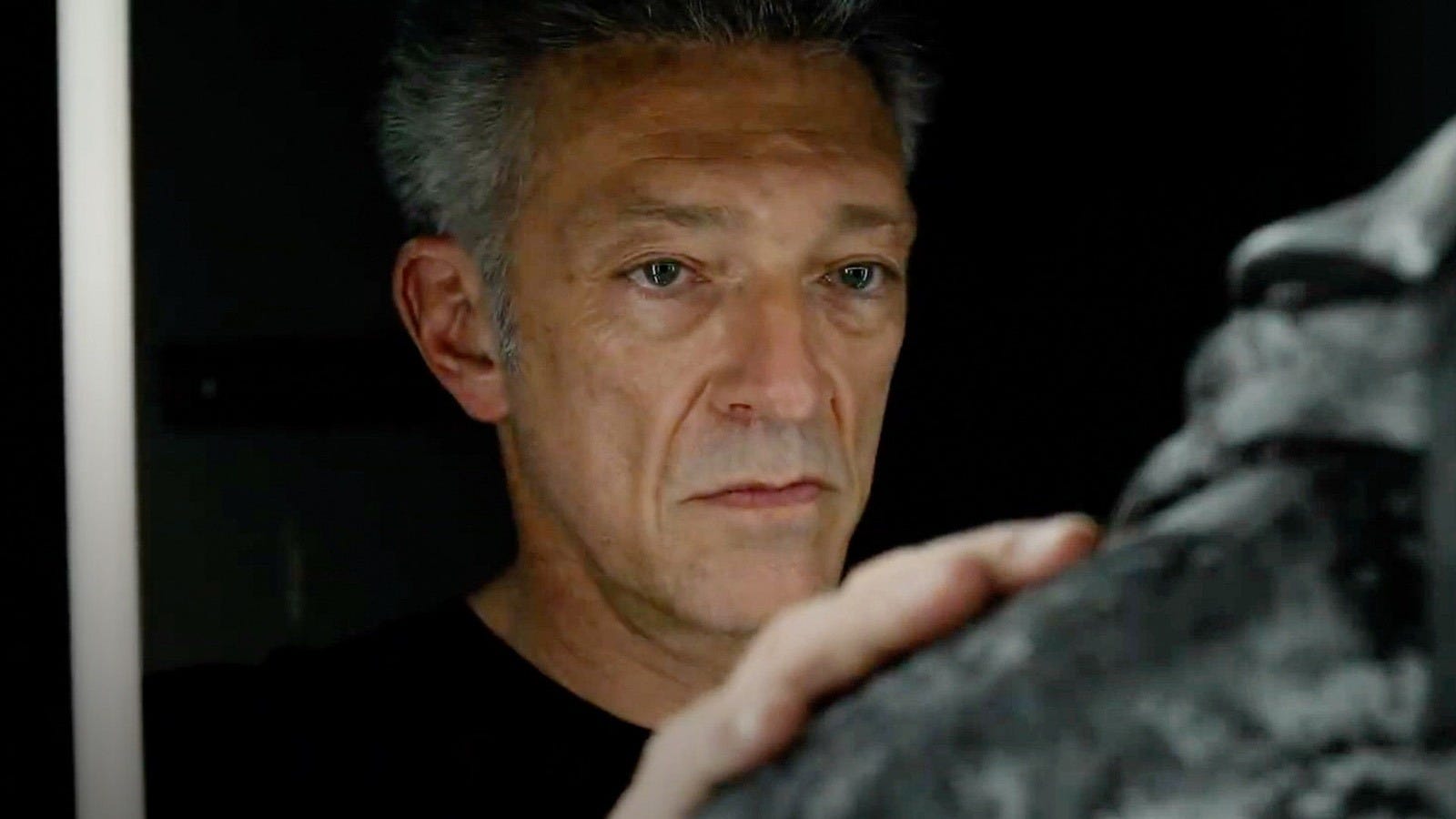
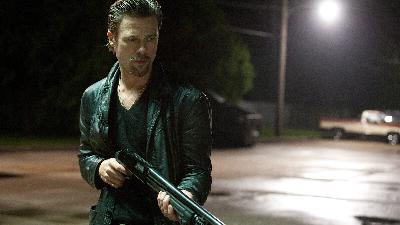
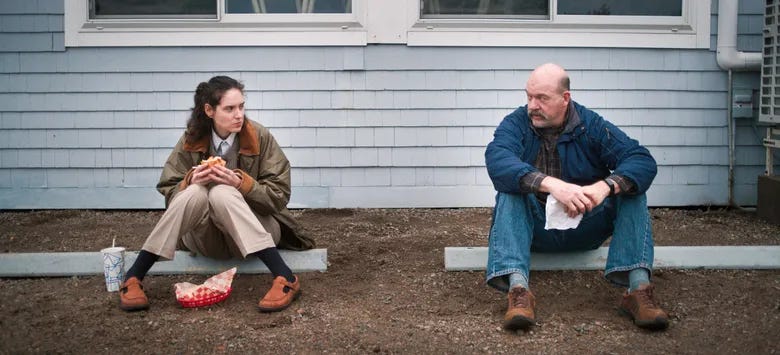
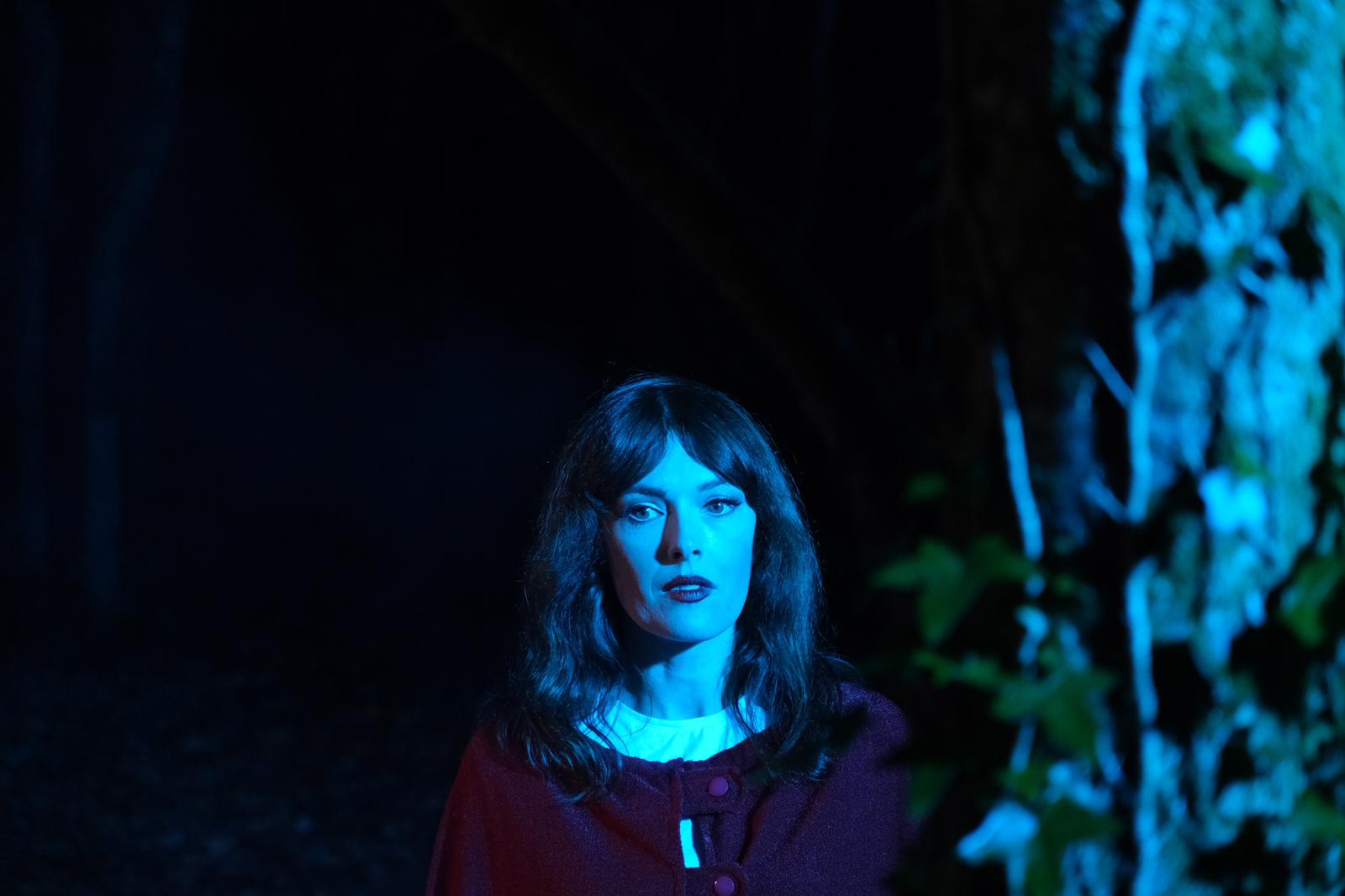
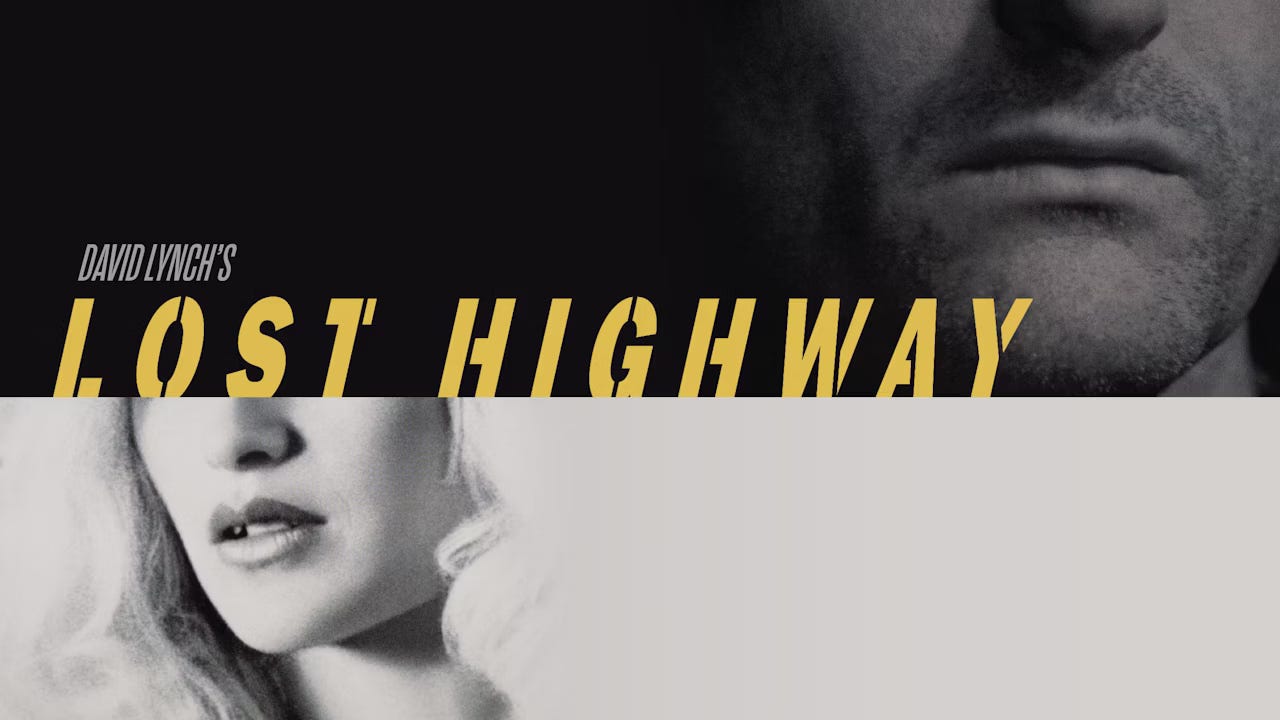
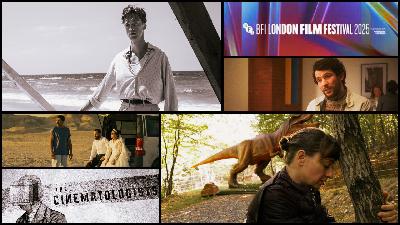
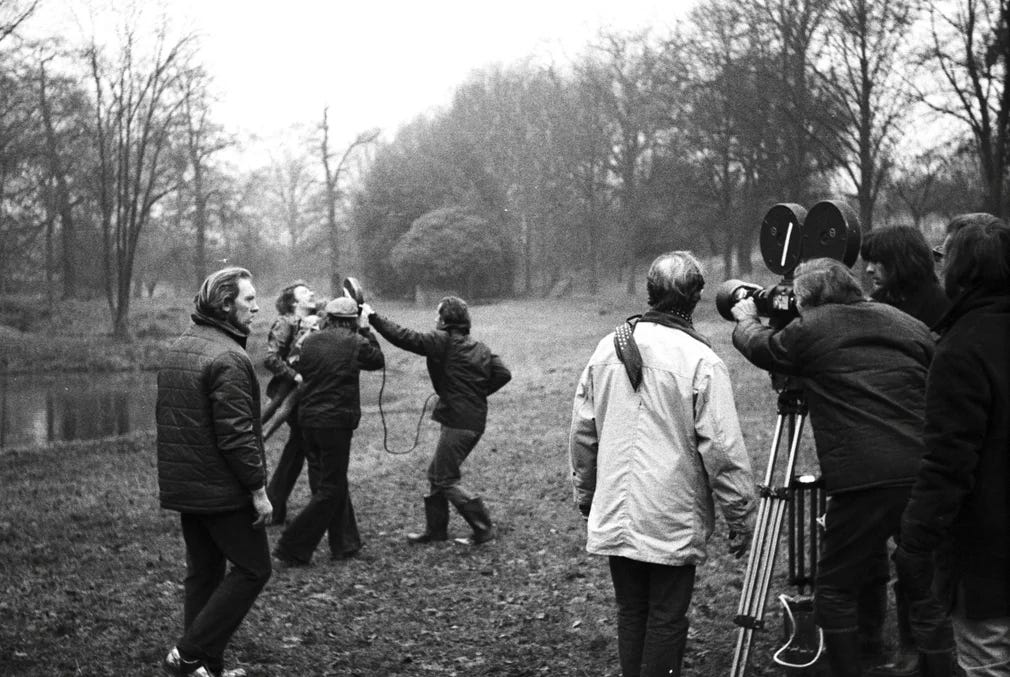
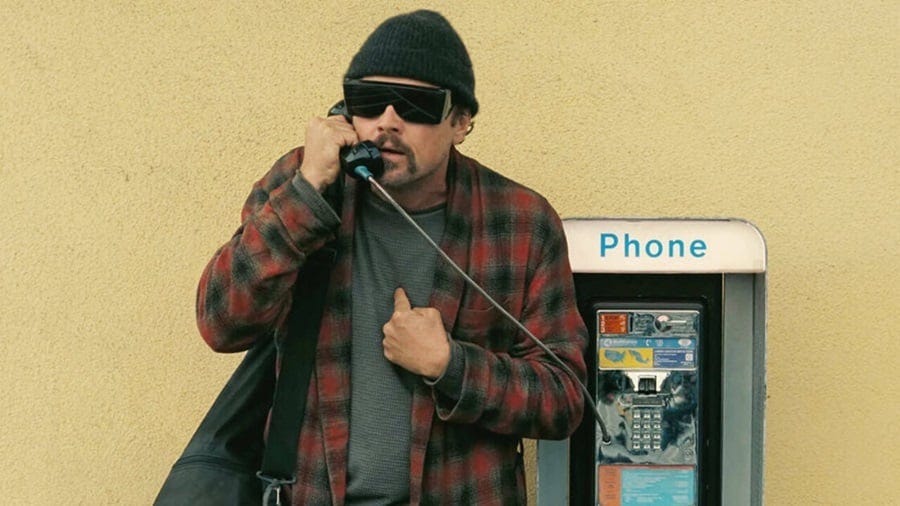
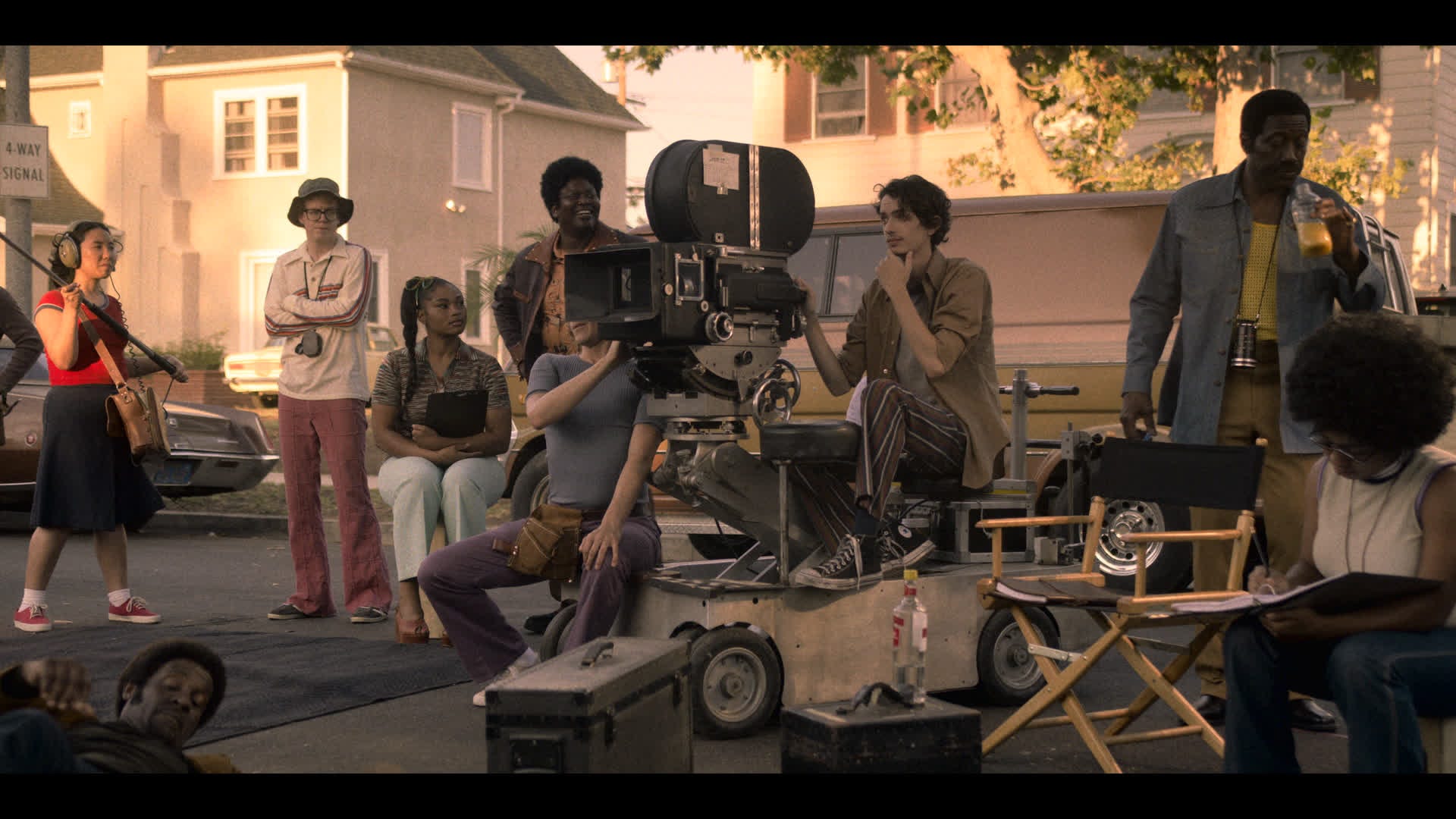
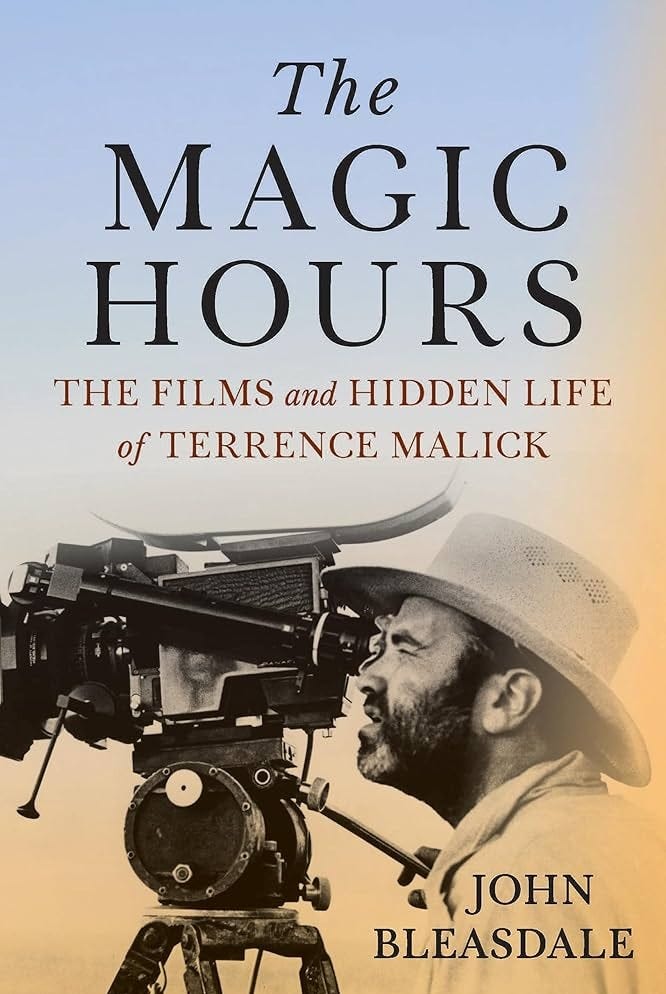

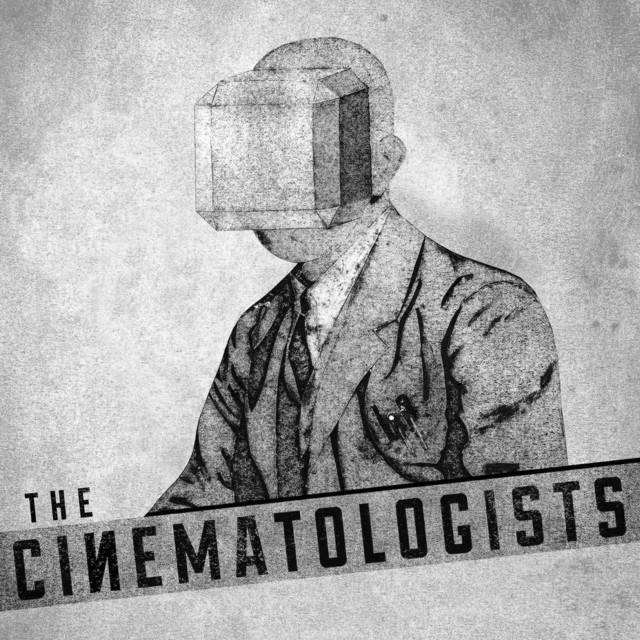
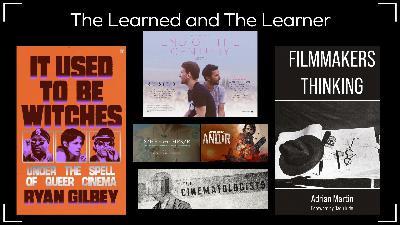
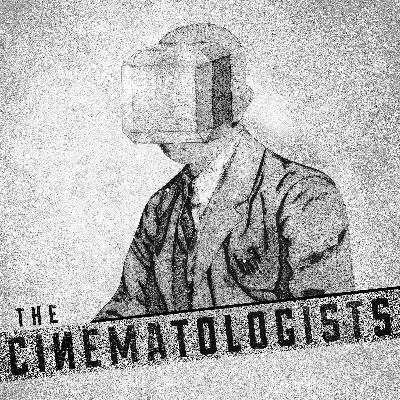
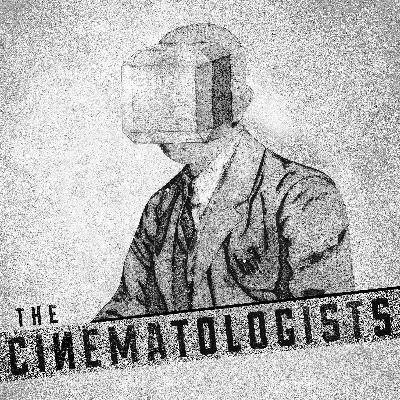
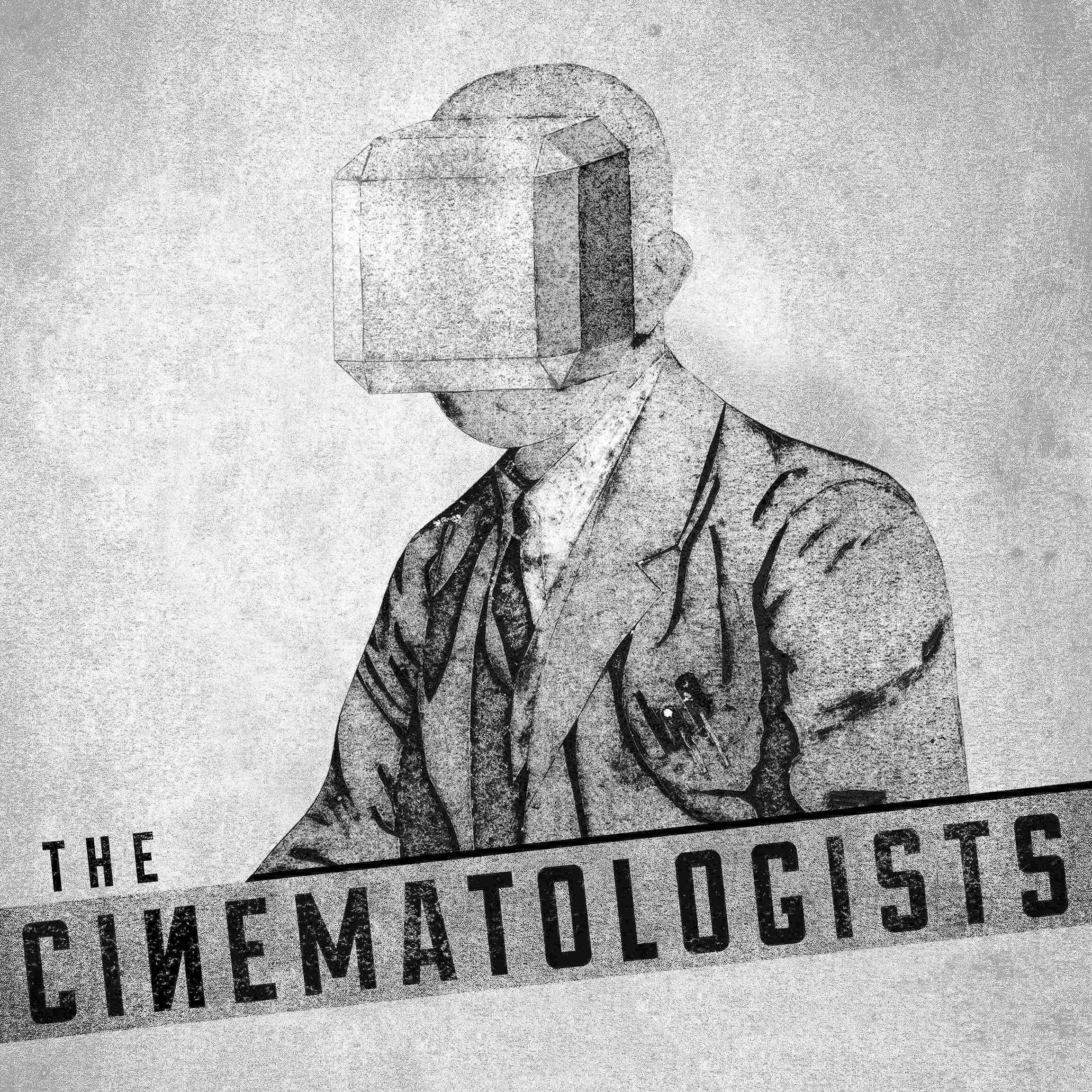
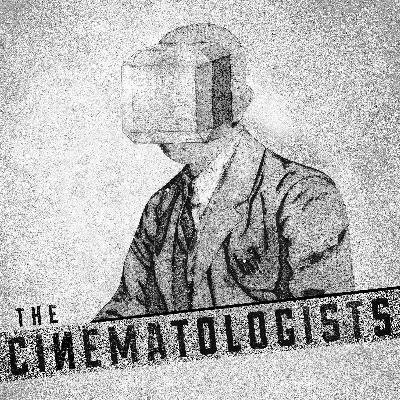
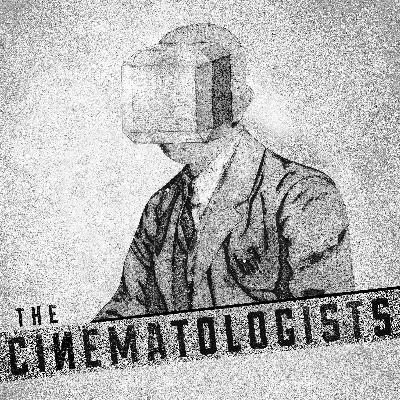



wonderful, I've just programmed Dragon Inn and Goodbye, Dragin Inn for my film night.